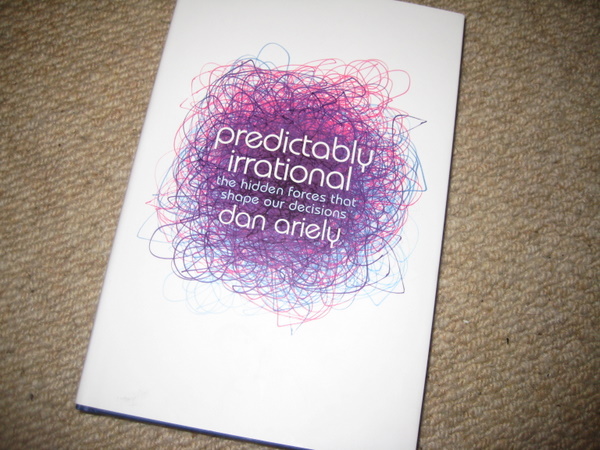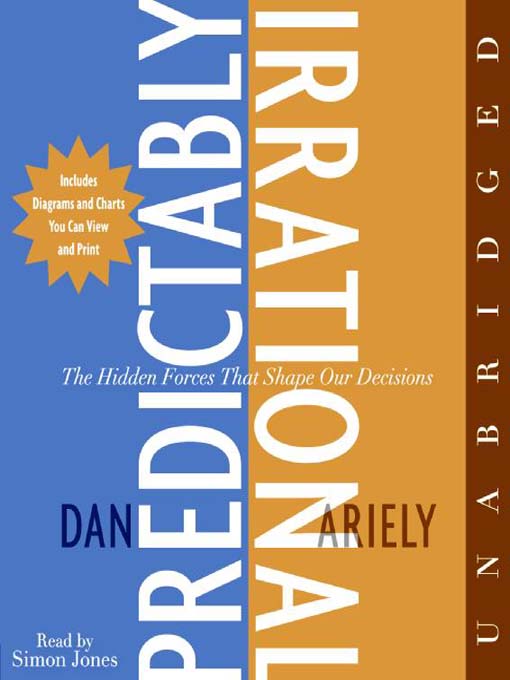

While I do think a lot of his research is extraordinarily attune to how so many people are overlooking ethics in their own lives, I also thought that some chapters may not always apply the way he thinks. I burned through the five chapters quickly and moved on to this book, Predictably Irrational. So, naturally, after seeing the free excerpts thoughtfully entitled, A Taste of Irrationality, I was hooked. I'm a business major with an art-based constitution who has a more than mild interest in psychology and sociology. Ariely's intelligent, exuberant style and thought-provoking arguments make for a fascinating, eye-opening read.įor curious and business executives alike Ariely argues that greater understanding of previously ignored or misunderstood forces (emotions, relativity and social norms) that influence our economic behavior brings a variety of opportunities for reexamining individual motivation and consumer choice, as well as economic and educational policy. According to Ariely, our understanding of economics, now based on the assumption of a rational subject, should, in fact, be based on our systematic, unsurprising irrationality. Drawing on psychology and economics, behavioral economics can show us why cautious people make poor decisions about sex when aroused, why patients get greater relief from a more expensive drug over its cheaper counterpart and why honest people may steal office supplies or communal food, but not money. Irrational behavior is a part of human nature, but as MIT professor Ariely has discovered in 20 years of researching behavioral economics, people tend to behave irrationally in a predictable fashion. They're systematic and predictable-making us predictably irrational. Yet these misguided behaviors are neither random nor senseless. From drinking coffee to losing weight, from buying a car to choosing a romantic partner, we consistently overpay, underestimate, and procrastinate. In this newly revised and expanded edition of the groundbreaking New York Times bestseller, Dan Ariely refutes the common assumption that we behave in fundamentally rational ways. When it comes to making decisions in our lives, we think we're making smart, rational choices. Why do our headaches persist after we take a one-cent aspirin but disappear when we take a fifty-cent aspirin? Why do we splurge on a lavish meal but cut coupons to save twenty-five cents on a can of soup?

George Akerlof, 2001 Nobel Laureate in Economics

"Ariely not only gives us a great read he also makes us much wiser." Jerome Groopman, New York Times bestselling author of How Doctors Think

"A marvelous book… thought provoking and highly entertaining."


 0 kommentar(er)
0 kommentar(er)
